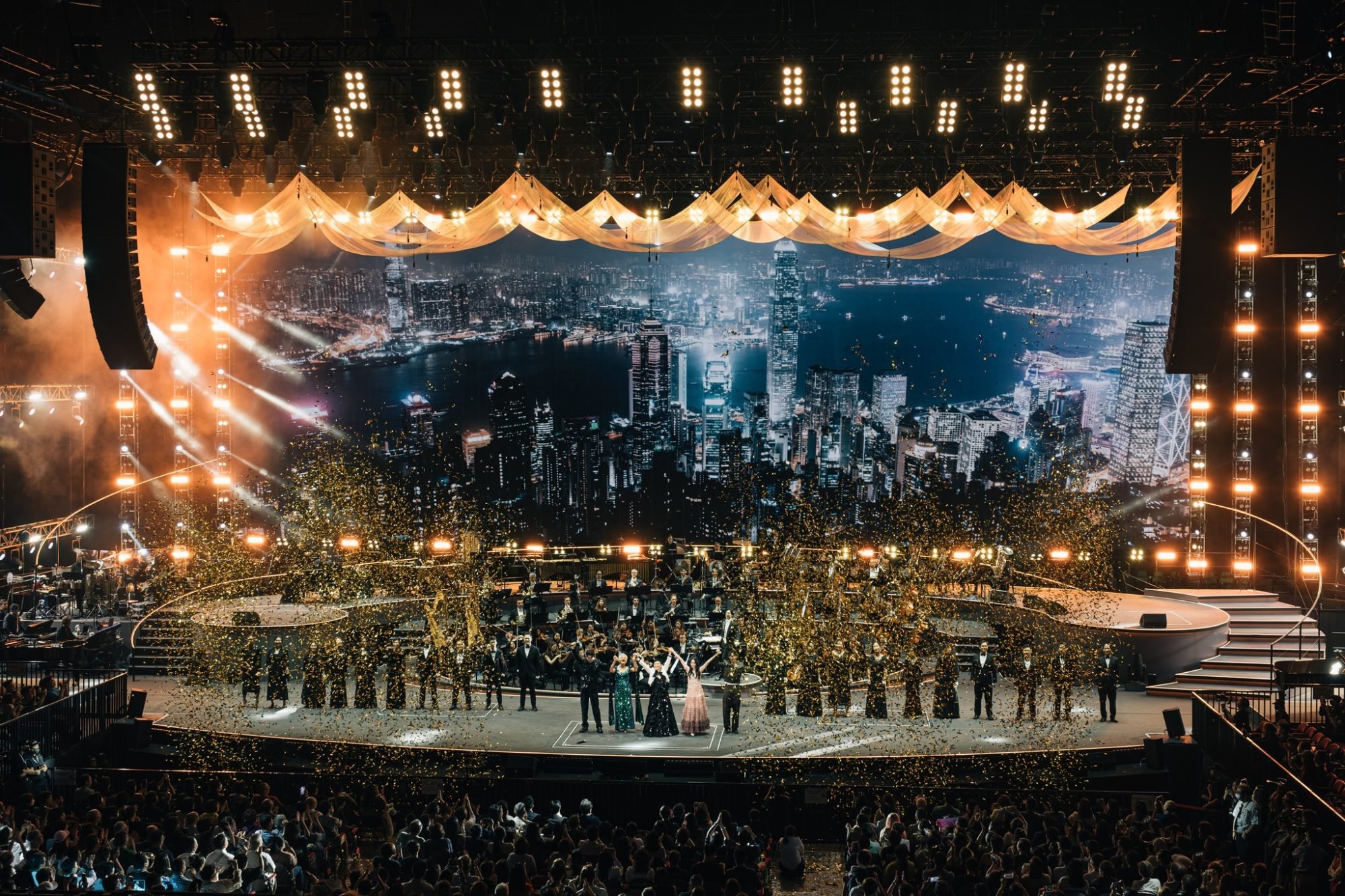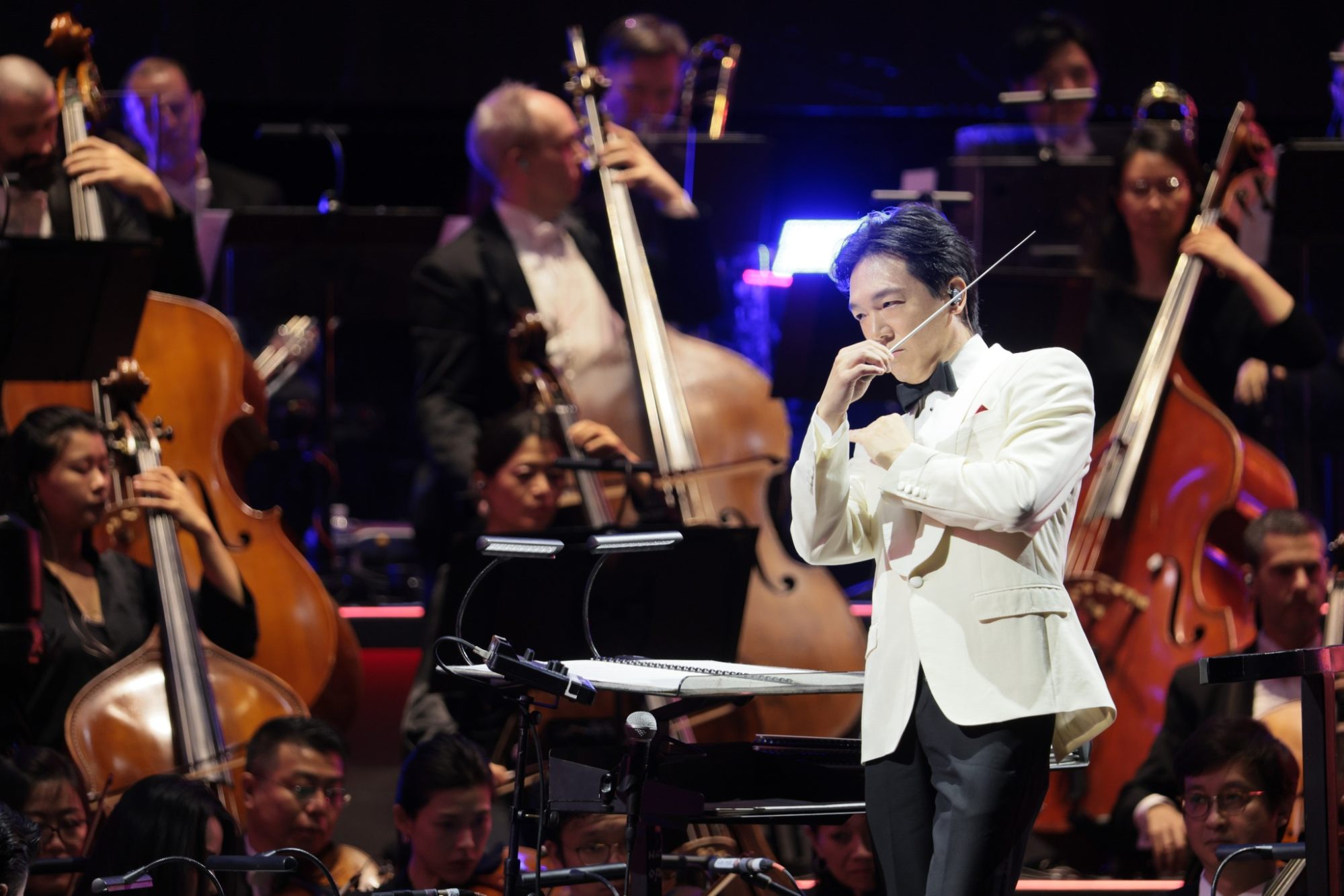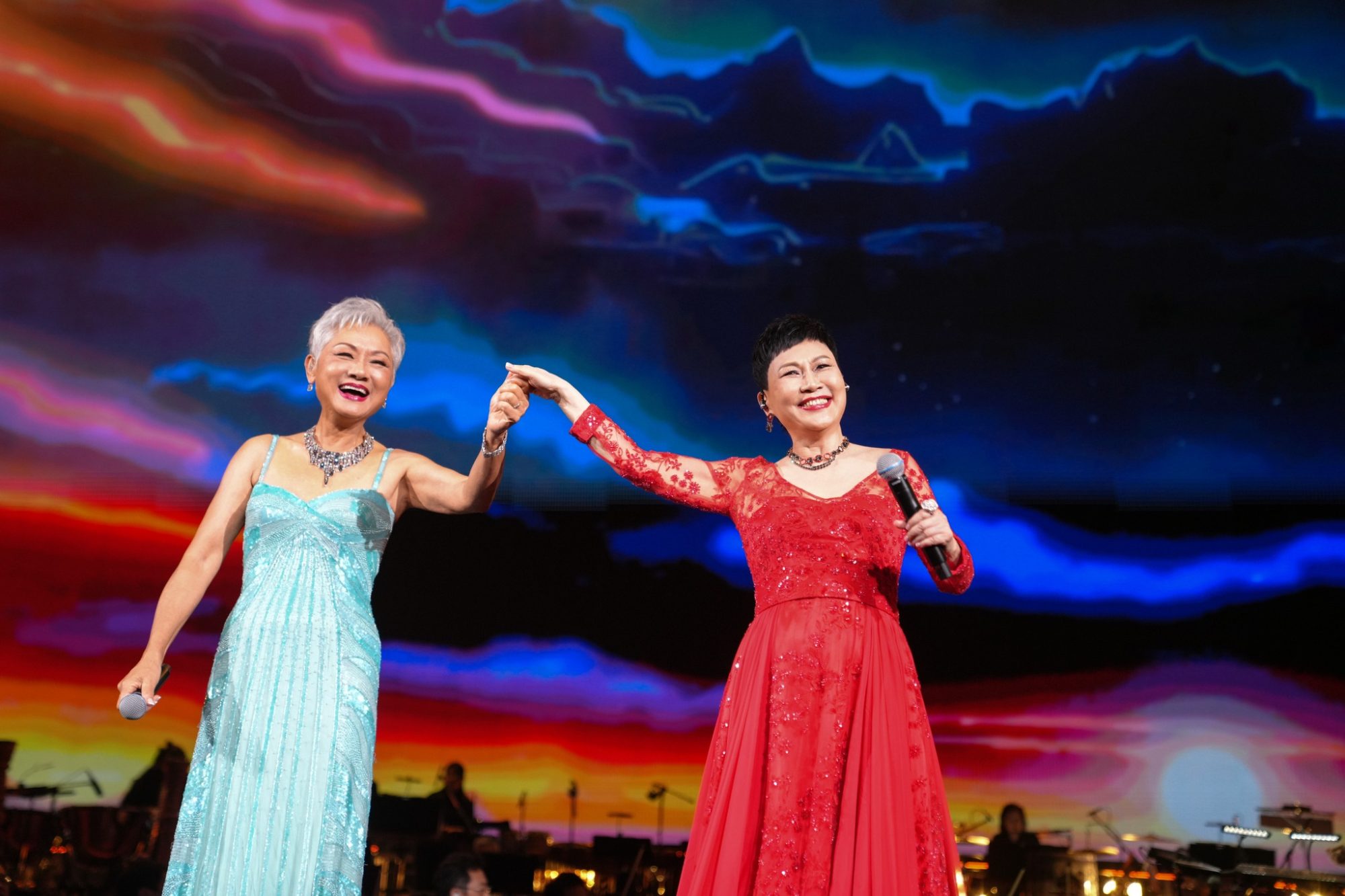Emerging from a six-year hiatus, Cantopop diva Sandy Lam Yick-lin thrilled the audience over three nights at the Hong Kong Philharmonic’s half-century anniversary shows celebrating the city’s prolific musical history.
Since it became a professional orchestra, in 1974, the HK Phil has regularly collaborated with Cantopop stars, weaving classical and popular music together.

Since concluding her Pranava world tour six years ago, Lam has rarely been seen in public. Even as her 2018 album 0 swept the top prizes at the Golden Melody Awards – the Grammys of Chinese music – the singer’s manager accepted the honours on her behalf.
At the HK Phil shows, Lam shared the stage with long-time collaborator Anthony Lun Wing-leung, the veteran singer-songwriter behind some of Cantopop’s biggest hits, performed by the likes of Lam, Andy Lau Tak-wah, Anita Mui Yim-fong, Faye Wong and more.
The pair first joined forces with the orchestra for five critically acclaimed concerts in 2004.
Lam, who pioneered R&B and jazz-infused pop songs in the 1980s, has been focused on singing, writing and producing, as many of her counterparts ventured into acting and other areas in entertainment.

The three-night collaboration, 20 years after its first presentation, proved the diva is still in a lane of her own.
Starting her set with a lighthearted rendition of “Good Morning” from her album Grey (1987), Lam’s singing personified the tenderness of the lyrics.
Next came fan favourite “Still” – the Cantonese version of Brenda K. Starr’s “I Still Believe” (1988). Lam recorded the song a year after Starr’s release and a decade before Mariah Carey released her cover version. Lam managed the highs and lows of the track with ease, to roars and applause.
Lam and Lun’s chemistry is undeniable. The pair collaborated on City Rhythm – a trilogy of dance-pop albums between 1988 and 1990, with women’s independence as the theme. From the series, they performed fan favourites “Paris in a Little Shower”, “Escape from the City” and “This Feeling Just Needs to be Remembered”.

On “Paris in a Little Shower” Lun, Ho and Lio, who was previously assistant conductor of the Philadelphia Orchestra, collaborated for a “six hands” performance on three pianos while the ensemble took a break. The combo epitomised the concert’s mission to breathe new life into generational hits.
Lam and Lun also paid tribute to late lyricist Richard Lam Chun-keung, singing his work “Thank You” (1991) – an Easternised rendition of “Could This be Love” by American girl group Seduction.
Lam dashed off to Nanjing and Tianjin in mainland China shortly after her Hong Kong shows, probably testing the waters for a full-scale comeback – one that is much anticipated by diehard fans across East Asia. Clips from her recent performances are making the rounds on social media sites in China and beyond.
The Hong Kong Philharmonic’s showcase was part of the Pop Culture Festival, which the Hong Kong government hopes will help shape and promote tourism in tandem with culture. The presence of 76-year-old Yip and 68-year-old Chan was very much on brand.

The long-time friends and frequent collaborators opened the show with a powerful set of local hits and theme songs from television dramas.
The highlight of their slot was an emotive 13-minute medley of classics, arranged by Ho, who has directed concerts for Hong Kong’s top singers, from 1980s group Grasshopper to Eason Chan Yik-shun. Yip also performed her signature tune, “The Bund”.
Rising talents Cloud Wan Ho-ying and Oscar Tao, and the more seasoned Jay Fung Wan-him, each performed concise solo sets before Lam and Lun were welcomed to the stage. They were cheered on by their A-list peers in the audience, including Joey Yung Cho-yee and Miriam Yeung Chin-wah.
Hong Kong’s “Lion Rock Spirit”, which highlights the city’s resilience and solidarity, was in evidence throughout the show – aided by well-placed graphics on a gigantic LED screen. The theme might have been even better embodied if Lam and Lun were also present for the finale of “A Thousand Suns”.
That the attendees were mostly middle-aged and mature adults speaks to the shifting appetites and consumption habits in Hong Kong. While interest in and nostalgia for music from “old Hong Kong” have grown overseas, the local market appears too saturated with dancey, K-pop-borrowing idols for the average listener to care about poetic oldies being reinterpreted in “highbrow” ways.

